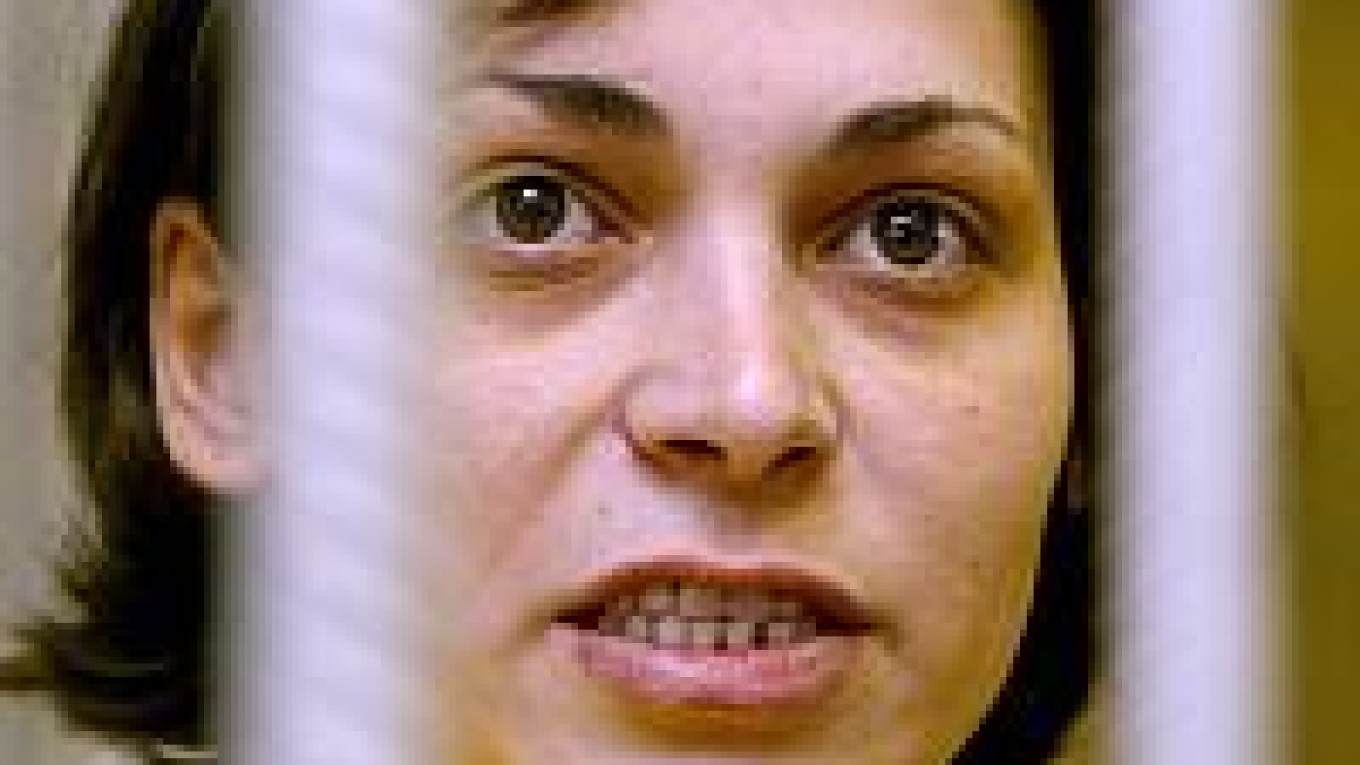Zarema Muzhikhoyeva was arrested in July 2003 after her strange behavior attracted the attention of security guards at a restaurant, and a bomb was found in her bag. A bomb expert was brought in to defuse it, but it went off and killed him.
A Moscow court found her guilty of terrorism, attempted murder and illegal possession of explosives, and sentenced her in April to 20 years in prison.
Muzhikhoyeva's lawyers appealed the ruling, asking the Supreme Court to quash the sentence and send the case back to the court for a new trial.
They cited her aid to the investigation in their request for leniency, news agencies reported.
Based on testimony after her arrest, security officials located a house in the Moscow region where bombers' explosives were assembled.
Interfax did not give the court's reasons for rejecting the appeal.
The incident followed a series of suicide bombings blamed on Chechens, including one at a rock concert at the Tushino airfield five days earlier that killed 15 bystanders and two attackers.
Suicide bombers have often been Chechen women who lost husbands or other loved ones in the fighting and chaos in Chechnya.
In pleading for leniency, Muzhikhoyeva said, "We weren't taught how to surrender to authorities, we were taught how to press the button," Interfax reported.
She also warned that "other girls who are forced to do this" will be watching to see how she is dealt with by the courts.
"I don't want to be the first and the last who surrenders," Muzhikhoyeva said.
In an interview with Izvestia in February, Muzhikhoyeva said she had decided not to go ahead with a suicide bombing and did her best to attract attention to herself without provoking punishment from minders she said were following her and whom she believed could detonate the bomb by remote control.
Meanwhile, investigators continued piecing together information about last week's twin plane crashes that killed 90 people. Authorities say both planes crashed as a result of terrorism, and suspicion has focused on two Chechen women who had booked seats on each plane.
A Message from The Moscow Times:
Dear readers,
We are facing unprecedented challenges. Russia's Prosecutor General's Office has designated The Moscow Times as an "undesirable" organization, criminalizing our work and putting our staff at risk of prosecution. This follows our earlier unjust labeling as a "foreign agent."
These actions are direct attempts to silence independent journalism in Russia. The authorities claim our work "discredits the decisions of the Russian leadership." We see things differently: we strive to provide accurate, unbiased reporting on Russia.
We, the journalists of The Moscow Times, refuse to be silenced. But to continue our work, we need your help.
Your support, no matter how small, makes a world of difference. If you can, please support us monthly starting from just $2. It's quick to set up, and every contribution makes a significant impact.
By supporting The Moscow Times, you're defending open, independent journalism in the face of repression. Thank you for standing with us.
Remind me later.


